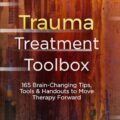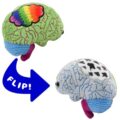Managing ocd can be challenging, but support tools can make a big difference. They can help you navigate daily struggles more easily.
Also Read
Ocd, or obsessive-compulsive disorder, affects millions of people worldwide. It involves unwanted thoughts and repetitive behaviors. Simple tasks can become overwhelming. But there are tools available to help manage symptoms. These can range from mobile apps to therapy techniques. They offer practical support and guidance.
With the right tools, managing ocd becomes less daunting. This blog post will explore various support tools for ocd management. You’ll find resources that can help make life more manageable. Let’s dive into the options available and see how they can support your journey.
Buying Guide On Support Tools For Ocd Management
support tools for ocd management buying guide
1. Identify your needs
understanding your specific needs is crucial. Different tools serve varied purposes.
2. Seek professional advice
consult with a mental health professional. They can recommend suitable tools.
3. Research available tools
explore books, apps, and therapy aids. Each offers unique benefits.
4. Read reviews
check user reviews for honest feedback. It helps in choosing effective tools.
5. Check compatibility
ensure tools are compatible with your current treatments. Avoid conflicts.
6. Look for proven effectiveness
choose tools backed by research. Proven methods ensure better outcomes.
7. Consider ease of use
pick tools that are simple to use. Complicated tools may add stress.
8. Budget considerations
set a budget before shopping. Compare prices to find affordable options.
9. Trial periods
look for tools offering trial periods. Test before committing long-term.
10. Support and resources
check for available support. Online communities and resources are valuable.
11. Track progress
monitor your progress with the tools. Adjust usage based on results.
12. Stay updated
keep up with new tools. Innovations can offer improved support.
Conclusion
Finding the right support tools can greatly aid in managing ocd. Tools like apps, therapy, and support groups offer practical help. They provide structure, coping strategies, and a sense of community. Each tool has its unique benefits and can be tailored to individual needs.
Consistent use of these tools can lead to improved mental health and a better quality of life. Remember, managing ocd is a journey, not a destination. Patience and persistence are key. Explore different tools, and find what works best for you.
With the right support, living with ocd becomes more manageable. Never hesitate to seek help. You are not alone in this journey.























